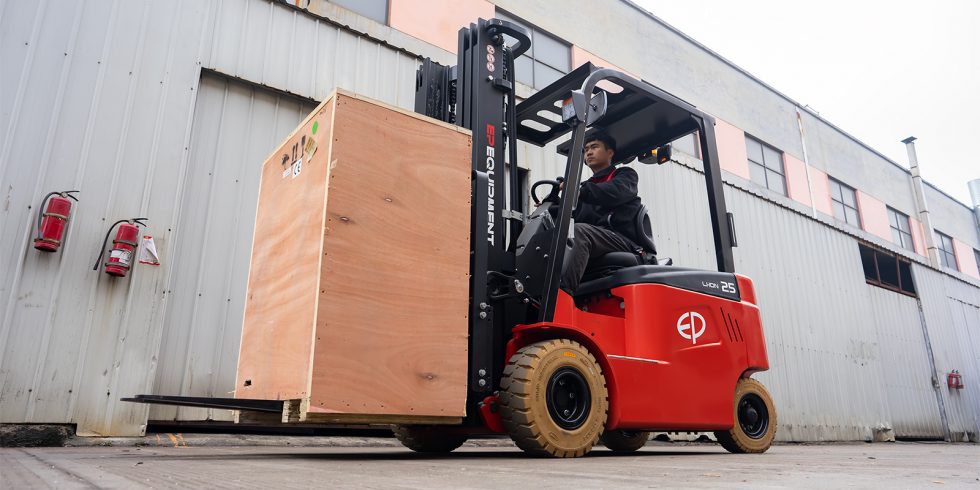While many companies working in the industrial sector have been hit hard by COVID-19, operations involving material handling in the pandemic have remained resilient. For the material handling industry, 2021 has been challenging but it has largely been able to keep operating effectively amidst the pandemic due to its progressive attitude towards the latest innovations available, but also due to its rigid adherence to health and safety that has been in force long since before the outbreak.

Material handling pandemic problems answered by automation
Over the years, the material handling industry has been increasingly moving to more automated measures for moving goods from one place to another. For everything from order pickers and reach trucks to the ever-reliable forklift truck, 2021 is set to see this trend continue, with an even greater demand for human workforces to interact less with manufactured goods to limit the spread of COVID-19. This pre-existing implementation of mechanical equipment to handle stock has proved exceptionally beneficial for the industry that once required a far more hands-on approach.
This last decade has seen a growing use of automation in the material handling sector with the introduction of far more advanced and reliable robotic solutions being deployed. In the current crisis, manufacturing operations are facing a far greater expectation to produce and distribute products, making what has always been a competitive market, oven more so. From crucial items like toilet paper and hand sanitiser to a greater demand for groceries delivered to doorsteps, material handling firms have looked to automation as an answer to accelerate productivity with much success.
Many enterprises, like some of the larger supermarket chains here in the UK, have been trialling “dark warehouses”. At these premises, robotic order pickers are assembling people’s purchases and packing them ready for delivery to avoid any unnecessary risk from human contact. Whether staff are furloughed or unable to attend shifts due to illness, an increasing use of automation can offer effective relief and allow businesses to deliver the same level of service to their client base.
Enhanced security measures onsite
Technological advances are being adopted by many operations in more ways than simply automating processes. Many warehouses, factories and other sites are seeking out state-of-the-art solutions to ensure their workforce remains robust in the face of the pandemic. The latest thermographic cameras available can be stationed outside and test the skin temperature of staff members before they enter.
These devices can scan from a safe distance and assess multiple individuals simultaneously, making them ideal for processing large shifts swiftly. If staff members are identified as having higher skin temperatures associated with COVID-19 symptoms, they can be refused entry and advised to seek testing and medical assistance. Some of the equipment available benefits from infra-red night vision technology, allowing scans to be completed in low light, making them ideal for factories with a night shift.
Only healthy staff are approved for entry to the site, ensuring that personnel remain safe from COVID-19 and there is no chance of the virus being spread onto goods. COVID-19 has been identified as being able to remain active on cardboard surfaces for up to 24 hours and 72 hours on stainless steel and plastic, so this has been a key factor in keeping many sites COVID-free.
Dedication to health and safety
Strict rules have always governed the material handling industry to ensure the safety of personnel on-site, the condition of goods handled, along with their end recipients. The exacting standards that operations have been held accountable for have allowed these businesses to adapt quickly to COVID-19 and mitigate risks.
Effective material handling involves a carefully planned system involving processes that are constantly evaluated and assessed in terms of efficiency. Having such oversight over an operation already in place has allowed enterprises involving material handling to easily enforce more stringent safety measures without disrupting workflow.
With a strong and streamlined infrastructure already in place, material handling firms have been able to alter their operations swiftly to reduce staff contact with each other and goods, for effective social distancing and safer handling processes. This level of control has also been invaluable in ensuring new health and safety rules for industrial sites as dictated by the UK Government are strictly obeyed at all times.
Source: Ep equipment


 Copyright 2017-2025 All rights reserved.
Copyright 2017-2025 All rights reserved.